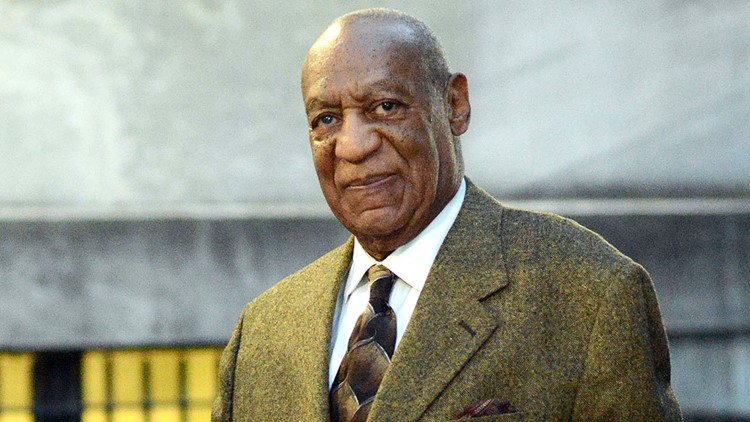In his first interview in two years, Bill Cosby says he is now completely blind.
He told the National Newspaper Publishers Association news service that he woke up one morning two years ago and told wife Camille, "I can't see."
Doctors later told the comedian that nothing could be done to restore his vision, so he and his team were forced to improvise.
“When he would perform, we’d draw a wide straight yellow line from backstage to the chair on the stage and he’d rehearse the walk, hours before the show,” his longtime publicist, Andrew Wyatt, revealed to the NNPA.
The revelation comes less than one month before jury selection is scheduled to begin for his June criminal sexual assault trial in Pennsylvania. He is accused of drugging and molesting Temple University employee Andrea Constand at his home over a decade ago. He has consistently denied the charge, maintaining their encounter was consensual.
On Wednesday, one of his defense attorneys, Los Angeles-based Angela Agrusa, shared her team's campaign strategy with The Hollywood Reporter.
"It's like the court of public opinion has found him guilty, and our job as lawyers is we now have to convince not just the judge but also the public why the initial verdict is wrong," she told THR. "Ultimately we want to make it safe again to enjoy a great episode of The Cosby Show."
She added that her team plans to attack the reliability of the witnesses' memories over the 13-year gap between Cosby's 2004 encounter with Constand and the trial with the ultimate goal of rehabilitating his reputation.
Both Agrusa and Cosby's interviews came on the heels of a public statement from the comedian's youngest daughter, 40-year-old Evin.
"We get all sorts of mixed-up messages in our society," she wrote on her father's Facebook page Wednesday morning. "We are told that we have fundamental rights to be innocent until proven guilty. But, if enough people think you are a bad person, you are branded a bad person and the media just reinforces that. My dad, like anyone in this country, deserves to be treated fairly under the law."
Contributing: Maria Puente



